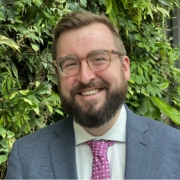Rosh Chodesh Elul: Pnina Margolese
(10) A woman of valour who can find? For her price is far above rubies.
’Many daughters have done valiantly, but you rise above them all.’ (30) Grace is deceitful, and beauty is vain; But a woman that fears the LORD, she shall be praised. (Proverbs 10-31)
Rosh Chodesh is a holiday observed by women. Holy Blossom Temple and Women of Holy Blossom are celebrating Women from our past and present who have made a difference in our temple life.
On this month of Elul we are delighted to present Pnina Margolese z”l, one of our own “Woman of Valour” (Eshet Chayil) who left us a few years ago and we continue to remember her for her strength of character and courage.
We have the privilege to have Sara Charney, past President of WRJ and temple member to honour our Eshet Chayil’s life.
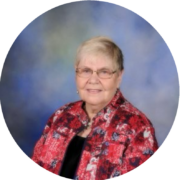 Pnina (Patty) Margolese z”l was larger than life—she delighted in everything and everyone. Her curiosity drove her persona; she loved meeting new people and inviting them into her world of theatre, choir, and Holy Blossom Temple.
Pnina (Patty) Margolese z”l was larger than life—she delighted in everything and everyone. Her curiosity drove her persona; she loved meeting new people and inviting them into her world of theatre, choir, and Holy Blossom Temple.
Born and raised in a loving family in Winnipeg, Pnina was surrounded by nurturing parents, a doting sister, Karen, and her large family in Israel, England and elsewhere, as well as numerous other family members and friends. Her mother instilled in her daughters the values of inclusion and belonging, long before those concepts began to permeate our culture. Pnina would reflect on her mother’s open-door policy—”any friend of my daughters’ is welcome in our home.”
Pnina was the constant face of Sisterhood at Holy Blossom! She managed the Sisterhood Judaica Shop with Hope Maissner for decades; she organized the annual Sisterhood raffle; she was the financial secretary of Sisterhood far beyond the constitutionally mandated term limits.
Pnina was also known to assign herself roles—an action which occasionally ruffled a few feathers. However, in her matter-of-fact way, she would simply say that if she didn’t look after that particular matter, then it would not get done. No doubt, she was correct!
While Pnina was gregarious, she was also very tender-hearted. Allow me to share one specific instance. I’m certain that people who knew her would also have their own stories to share.
The URJ was holding its Biennial conference in Boston in December 2001. It was the first large Reform Movement gathering that I would be attending. Amidst my excitement, I was also unsure about what to expect. In addition, because we were flying to Boston just a few months after 9/11, I was pretty terrified at that prospect. So, Pnina and I took the same flight and she held my hand throughout! At the WRJ conference, which ran parallel to the URJ gathering, there was a siyum taking place—a celebration in honour of the completing of the writing of the WRJ Torah scroll. I recall that moment vividly as this stunning newly written scroll by WRJ women, under the supervision of the scribe, was unwound and held up by women wearing white gloves. I had never seen a Torah scroll unravelled and it was a glorious sight! Pnina and I walked arm-in-arm around the ballroom and gazed at the entire length of the scroll. We located my eldest child’s Torah portion that he would be reading in two years’ time. What an emotional experience!
Over the course of many years, Pnina and I shared hotel rooms at too many meetings and conferences to mention. Primarily, I remember our laughing through those events!
Pnina was a proud Canadian and represented our women’s group so ably as our representative to our Northeast District board. Every year, she would present a Canadian perspective on our programming related to sisterhood, spirituality, or social justice work. She always made us proud.
Pnina was a trusting and loyal friend to those who knew her. She would be so pleased to see our new bold direction, to meet our new members, and to learn about our good works that create a meaningful community.
All genders are welcome to join Women of Holy Blossom and pray in solidarity with Israel’s Women of the Wall.
Join Women of Holy Blossom in sacred worship for Rosh Chodesh Elul on Tuesday, September 3, 7:30 am

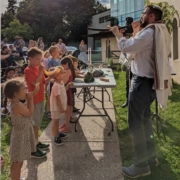

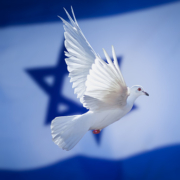
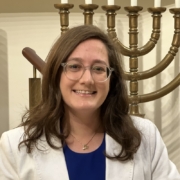
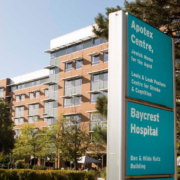
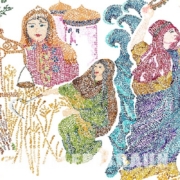
 Pnina (Patty) Margolese z”l was larger than life—she delighted in everything and everyone. Her curiosity drove her persona; she loved meeting new people and inviting them into her world of theatre, choir, and Holy Blossom Temple.
Pnina (Patty) Margolese z”l was larger than life—she delighted in everything and everyone. Her curiosity drove her persona; she loved meeting new people and inviting them into her world of theatre, choir, and Holy Blossom Temple.